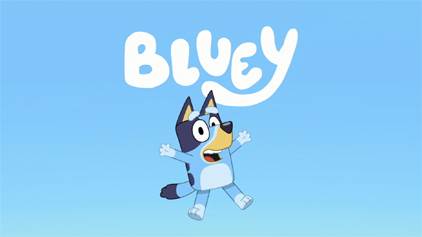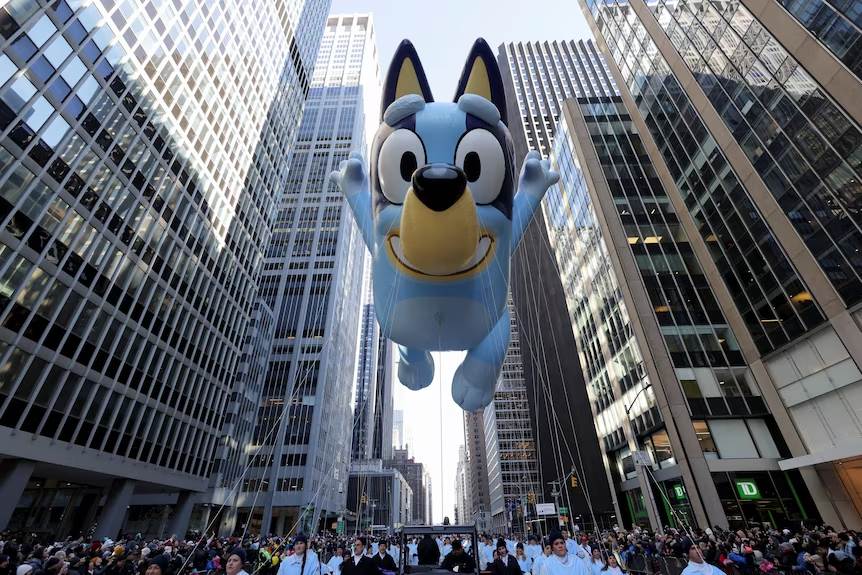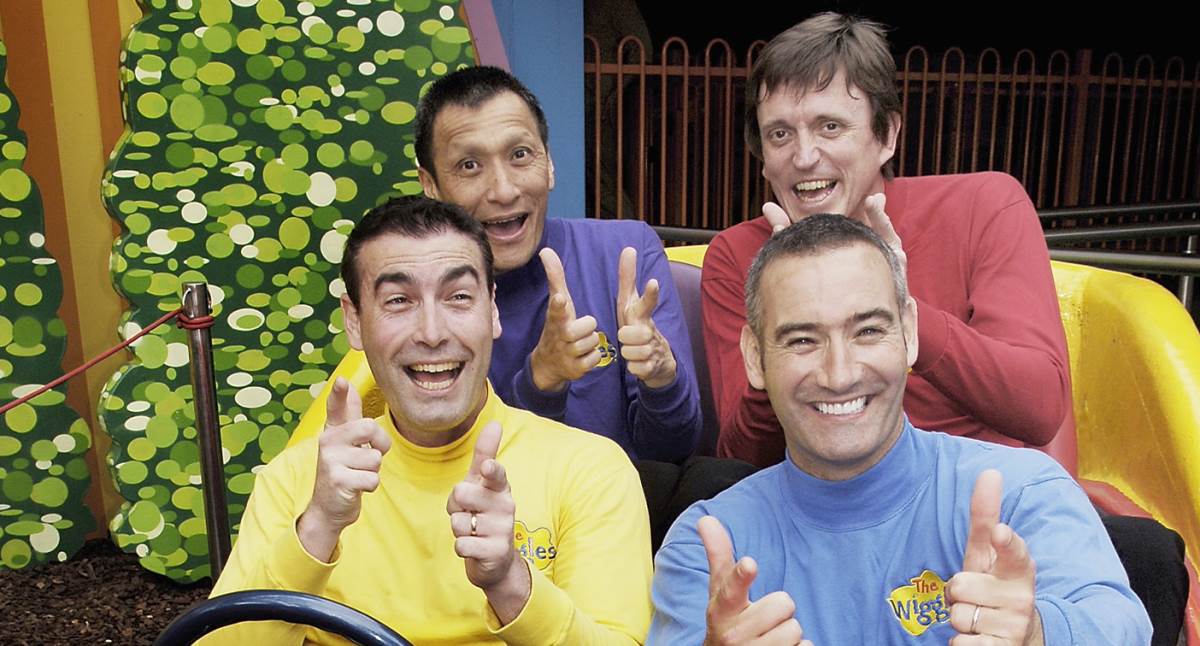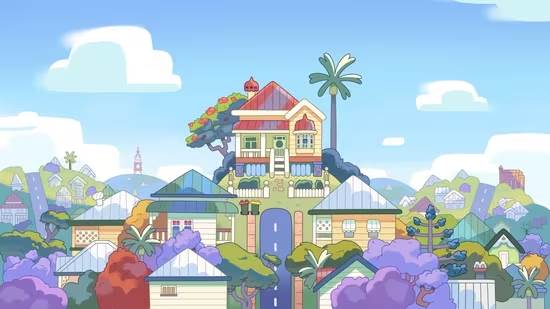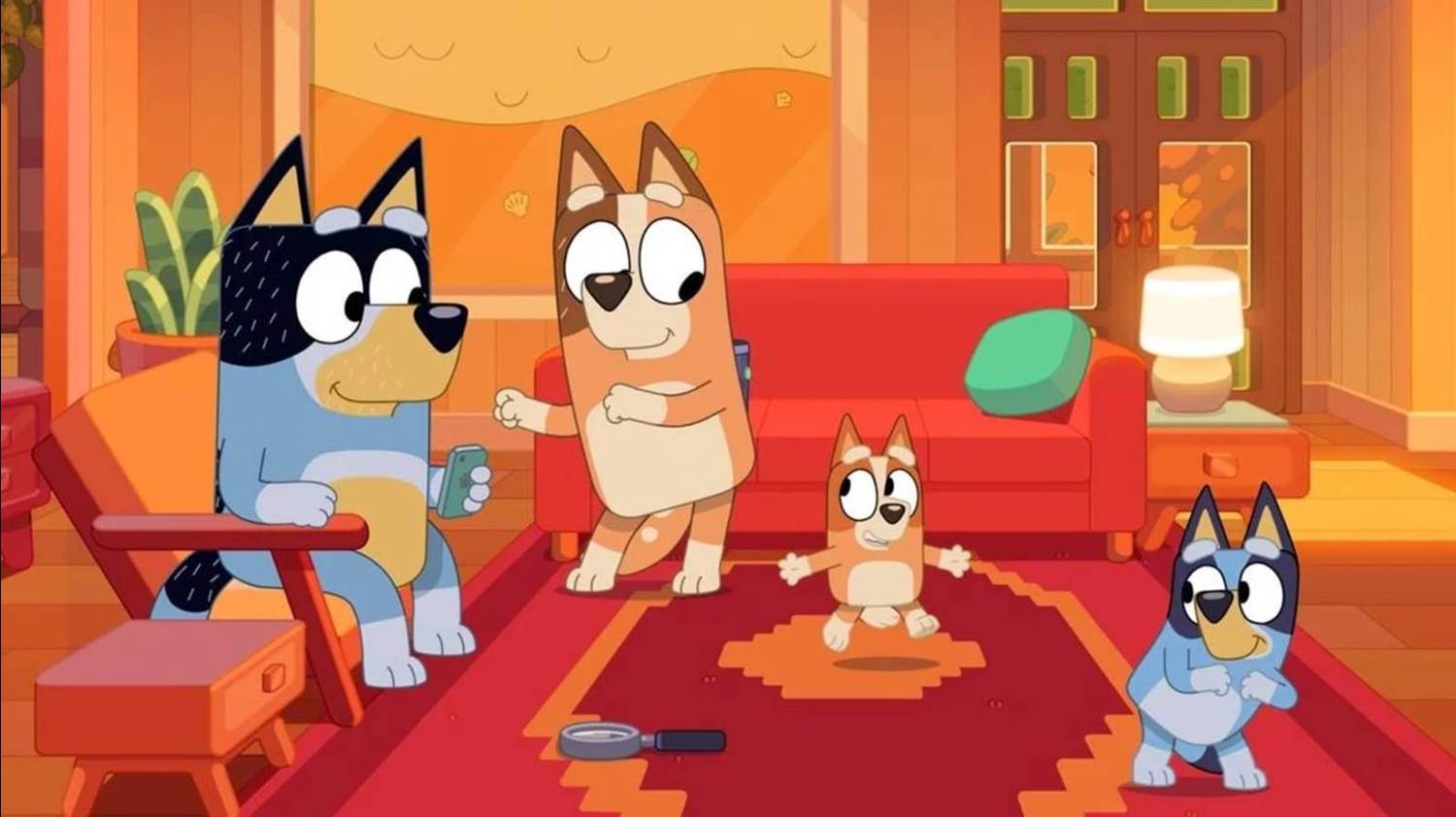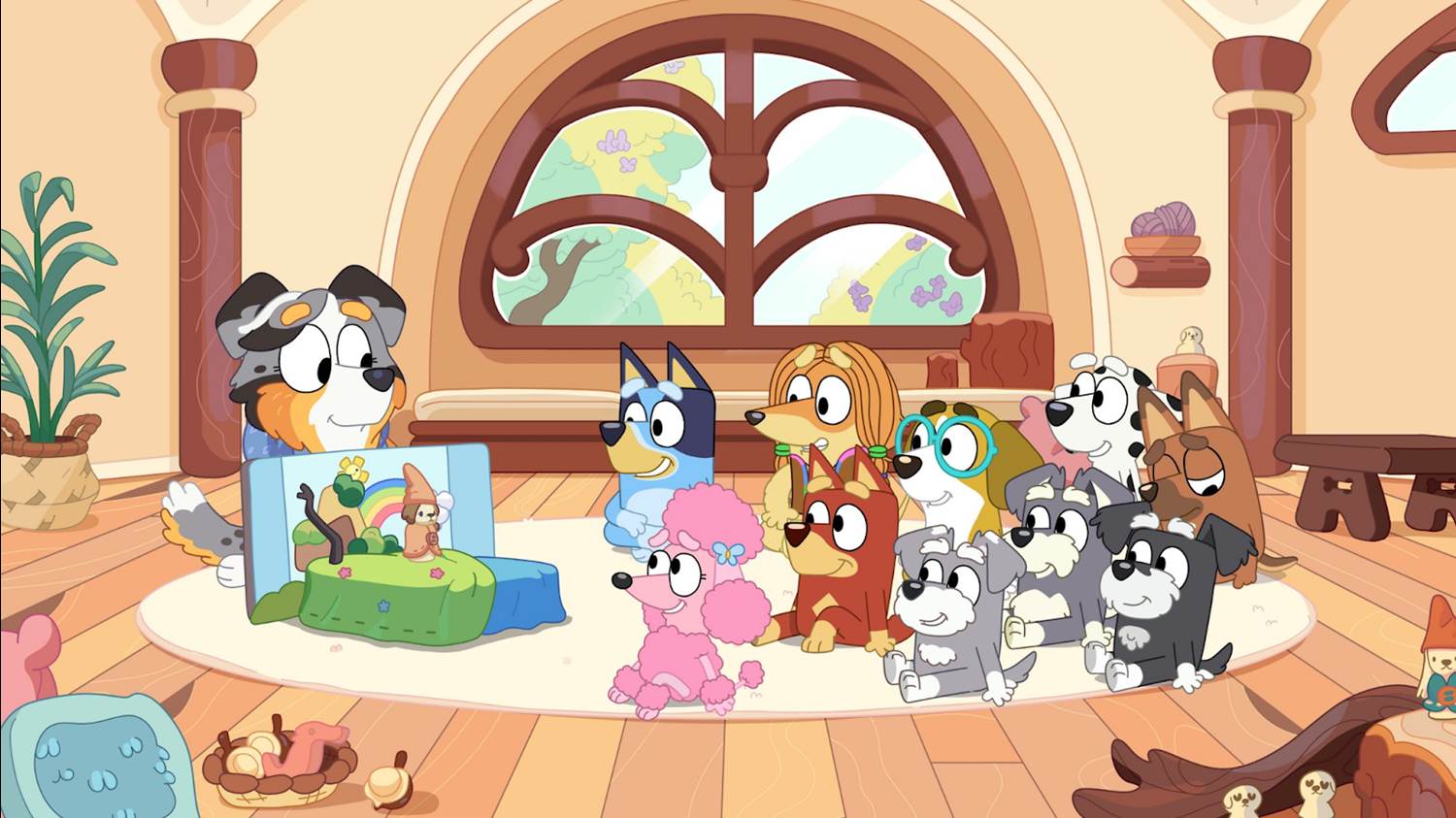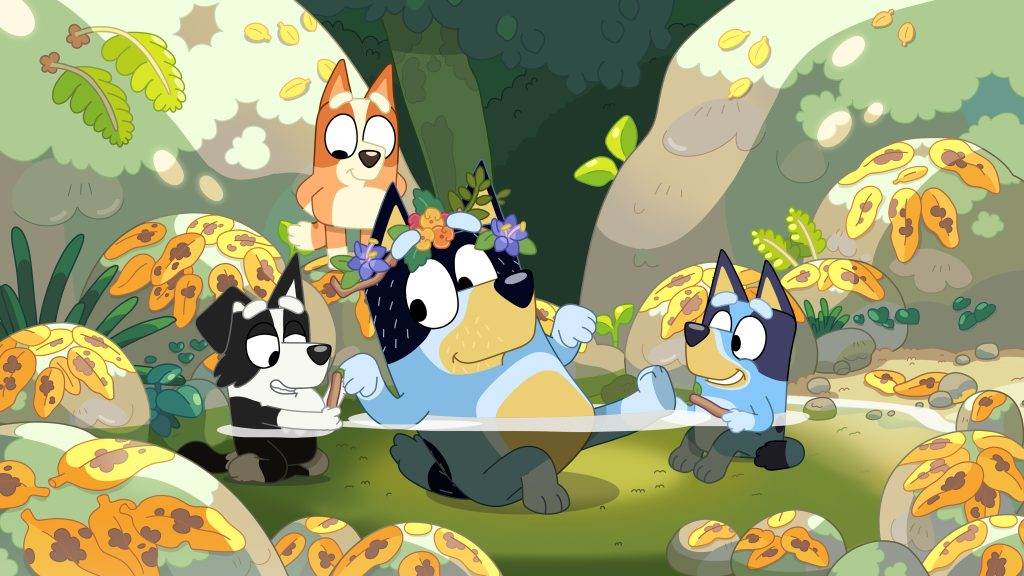It’s Bluey’s world. We’re all just living in it.
Cherished dogs have a long and storied history in global society. Goofy, Snoopy, Clifford, Scooby-Doo, and Lady and the Tramp (to name just a few) all have their well-earned places in the pantheon of pooches. But only once in a generation – maybe even once in a lifetime – does a cartoon canine character burst alive with such zeal and popularity as Bluey. The sassy pup with a heart of gold has become a global phenomenon, with television domination, music albums, a touring show, and even a balloon in the Macy’s Thanksgiving Day Parade.
Image: ABC
With three seasons of award-winning, heartwarming, and immensely entertaining episodes in the catalog, and a much-anticipated extra long special episode “The Sign” releasing on April 14th, Bluey is as high as the big blue sky. So what exactly is Bluey all about, and why is this animated series so popular? Let’s explore the world of Bluey and find out.
Who is Bluey?
In the simplest of terms, Bluey is an animated preschool television series centered on a family of four Australian Blue Heeler dogs. The title character, and for the most part the star of the show – is the seven-year-old Bluey. Her younger sister Bingo, and their hilarious parents – Bandit and Chilli Heeler – round out this adorable family of four. That’s it. That’s the whole premise.
On the surface, there is nothing overly magical about the show’s recipe. But take a few minutes to watch a couple seven-minute episodes, and you just might find yourself hooked. The values of family, friendship, and independent learning and creativity are colorfully on display through this endearing series, inviting a can-do feeling of inspiration in kids, and a reassuring confidence among their parents.
The Creation of a Cultural Phenomenon
Animator Joe Brumm of Queensland, Australia worked on children's programs in the United Kingdom as a freelance animator, with contributions to programs such as Peppa Pig and Charlie and Lola. On the personal side, Brumm is also a family man. He returned to Queensland after his time working in the U.K., got married, and had two daughters. Sound familiar? Brumm drew heavily on his own experience and values when creating Bluey, right down to the name and breed of the dog he had as a kid. In creating Bluey, Brumm had one primary goal – to portray the importance of children participating in imaginative play, while being supported by attentive parents who trust them to learn their way through life.
Brumm conceived the idea independently in 2016, and produced a one-minute pilot video through his company Studio Joho, with assistance from a small team helping in their spare time. Using his one-minute pitch video, Brumm approached Ludo Studio to develop the series. Ludo helped Brumm develop a 5-minute animation sample, which he then shared at the Asian Animation Summit in Brisbane, Queensland in 2016. Representatives from the Australian Broadcasting Corporation (ABC) and the British Broadcasting Corporation (BBC) viewed a sample and offered $20,000 of funding for the studio to produce a refined, seven-minute pilot.
It wasn’t easy to pitch a series without a high-concept. The premise was exceedingly simple, "just a show about family and games" as described by Daley Pearson, co-founder of Ludo Studios. But the following year, back at that same Asian Animation Summit in Brisbane, ABC and BBC co-commissioned Bluey as an animated series for preschool children, with Ludo Studio on board as the production company.
Brumm and the team at Ludo Studio went to work immediately, and Bluey premiered in Australia on ABC Kids on October 1, 2018, with 26 episodes releasing daily throughout the month. Another 26 episodes – rounding out the show’s first season – were released beginning April 1, 2019. A puppy was born.
Dog Down Under
Australia has a nice collection of cultural icons, including Crocodile Bundee, Men at Work, actors Chris Hemsworth and Nicole Kidman, The Crocodile Hunter, and the Great Barrier Reef. And let us not forget fellow children’s entertainers The Wiggles – an Australian musical foursome who took the kinder-world by storm in the late 90s and early 2000s – famously sold out New York’s Madison Square Garden for twelve remarkable shows amid their decade of dominance.
Yet, following in the footsteps of giants, Bluey figuratively said “Hold my grog.” Australia’s new finest family immediately captivated audiences, becoming the most popular television show nationally, and ABC’s most successful show ever. It has since reached a fever pitch of popularity around the world, with airplay in the U.K. via BBC, and worldwide reach thanks to Disney Junior and Disney+.
Despite Bluey’s worldwide reach, the show relishes in its Australian roots. The series – now winding down on its third season – is produced entirely in Australia by a local team, many of whom were originally first-time animators from Brisbane, Queensland.
From the imagination and talents of local creators comes an exquisite local product. Bluey is set right in Queensland – the backyard of the creative team. Queensland, and its capital city Brisbane, directly inspire the show’s setting. Sure, Bluey is a simple two-dimensional cartoon. Its characters and settings are equally non-complex. But the inspirations to the local environment and culture are subtly prevalent throughout the show.
The Heeler’s high-set home, with its characteristic verandas set against a skyline reminiscent of Brisbane, sets the story comfortably in Queensland’s semi-tropical climate. Local nature is proudly on display with flora such as Poinciana trees and Jacaranda trees, and wildlife such as fruit bats, wallabies, kookaburras, and ibises.
Aside from the visuals, Australian culture is front and center as well. All characters considered “locals” in the show speak with a trademark Australian accent, and the Australian sense of humor and dry wit frequently shine through in the show’s dialogue. Local terminology and mannerisms complete the authentic flavor.
Why Is Bluey So Popular?
So why exactly is Bluey such a worldwide phenomenon? That question may be a mystery to those who haven’t yet seen the show. But get a couple episodes under your belt, and Bluey’s brilliance will be crystal clear.
The program was designed to be an experience for parents and their children to enjoy together. Does that sound familiar? It should – it echoes Walt Disney’s philosophy when creating Disneyland, where he wanted to build “a family park where parents and children could have fun- together.”
There are plenty of shows out there for the youngest of viewers, but very few of them offer any significant amount of entertainment value to parents. Just set to play and let the kids be amused.
Bluey, however, pulls in kids and their parents hook, line, and sinker, which caters to valuable family bonding time. The story plots are always low stakes (though what we adults may consider “low stakes” can often be quite important to little ones). The story mood is cheerful, with the perfect balance of kid-talk mixed with just a bit of “cheeky” humor thrown in to amuse the adults in the room.
The Humor
Let’s call it what it is. Bluey is often exceptionally funny. The cool thing concerning a show about kids is, we’ve all been there. Everyone can identify with it. Whether it’s something as common as playing with toys, or something as specific as “unpacking” the dishwasher. The contests, the games, and the squabbles are all versions of situations we’ve experienced at some point in our lives.
But Bluey takes those moments and “plusses” them with quick-witted humor that can be easily captured in animated format. Bandit, the contemporary dad who is far and away the funniest character in the show, is quick to get down on “kid-level” to play with his pups. But he’s equally at home cracking jokes with a neighborhood dad. Chilli, on the other hand, is a slightly more serious parent on the surface, but quietly slips in a healthy portion of subtle humor – often at her husband’s expense. As for Bluey and her sister Bingo, they are much simpler characters – kids who do kid things and feel kid emotions. The humor in those pups comes from the innocence of their actions. Even when the Heeler pups are in the wrong, we as adults have enough life experience to recognize the humor in their mistakes.
The Learning
But while the physical stakes in a typical Bluey episode are comfortably low, the emotional impact of those issues is 100% present. The pups (Bluey, Bingo, and their cousins and friends) experience emotions such as jealousy and regret mostly through their gameplay and peer interactions.
The parents, Bandit and Chilli, are always accessible to help their pups absorb the lessons they are learning. And here is a critical part of the show’s brilliance. You’ll rarely see a parent teach their pup a lesson on Bluey. Instead, you’ll see them guide their pups on their journey – close enough for comfort, but giving enough space to let the pups work through their emotions largely on their own. By showing this empowered sense of discovery in a safe and supportive environment, Bluey is encouraging kids to explore their own world, while inviting parents to pull up a little closer to watch the magic happen.
The pups in Bluey – hovering in that K-2 age range – feel very real emotions through a range of everyday situations. As such, there is never a need for an antagonist in the series. The emotions always form the central conflicts of the program. While all these lessons are being learned, kids are both mesmerized, and amused. As for the parents? It’s not uncommon to toggle between chuckling and choking back tears, all in the span of moments. That’s the true magic of Bluey.
The Visual Charm
The vibrant pastel color palette of Bluey is appealing to the eye. Simplistic in design, the imagery in Bluey evokes a similar brilliance as the art of Disney Legend Mary Blair. Less is more, and simpler is often better. The setting in the series lends just enough detail to be more interesting to kids, but not so much as to clutter the story.
I hope you enjoyed this trip through Bluey’s world. Will you be tuning in for the premiere of the first-ever Bluey special on April 14? At 28 minutes long (the length of four normal episodes) you won’t want to miss it!
Join the conversation with a comment to this article, either here or on social at: X Instagram
Sources:
The rise and rise of Bluey – Britt Wilkins, Contact magazine, The University of Queensland Australia
How ‘Bluey’ conquered the world – Nic Fildes, Australian Financial Review – January 19, 2024

